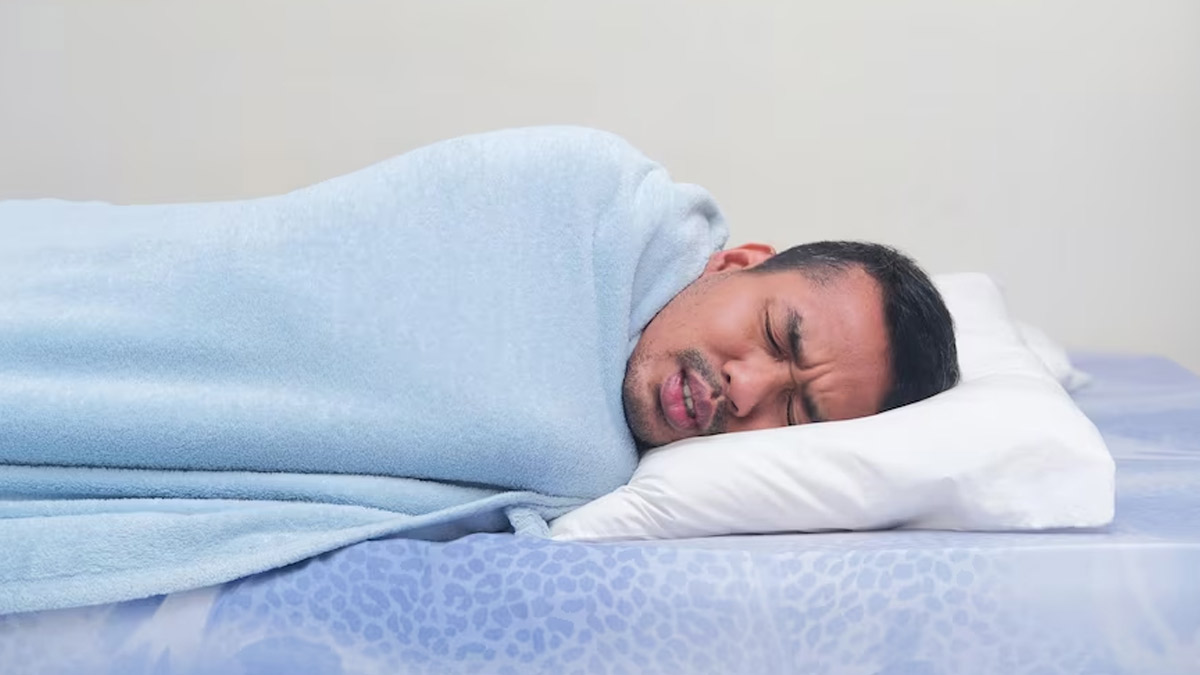
Do you find yourself struggling to get a good night's sleep due to sleep apnoea? You're not alone. Sleep apnoea is a common sleep disorder that can disrupt your rest and impact your overall health. The good news is that there are several amazing methods you can try to improve sleep apnea and finally enjoy those restful nights you've been longing for.
Table of Content:-
“Sleep apnoea is a condition in which one's respiration is frequently interrupted while sleeping. This might take the form of considerable airflow reduction when sleeping or full cessation of breathing while sleeping. They are referred to as "sleep-related breathing disorders" when they occur together” said Dr Prashant Makhija, Consultant Neurologist, Wockhardt Hospital Mumbai Central. Read to know about the effective strategies that can make a real difference.
Types Of Sleep Apnoea
According to National Heart, Lung, and Blood Institute, there are two types of sleep apnoea.
Obstructive Sleep Apnoea
This is a most common type of sleep apnoea. It occurs when your upper airway becomes closed several times while sleeping, lowering or entirely stopping airflow.
Central Sleep Apnoea
It happens when your brain fails to transmit the necessary signals for breathing. Central sleep apnea can be caused by medical disorders that impair how your brain regulates your airway and chest muscles.
You Need To Change Your Lifestyle
Start with simple lifestyle adjustments that can have a big impact on your sleep apnoea. Maintain a healthy weight by eating a balanced diet and engaging in regular physical activity. Excess weight, especially around the neck, can contribute to airway obstruction during sleep. Reducing alcohol consumption and quitting smoking can also help, as they both relax the muscles of the throat, increasing the risk of airway collapse.
Also read: Can You Compensate For Lost Sleep? Expert Debunks The Myth Of Weekend Catch-Up
Sleep Position
Believe it or not, changing your sleep position can make a significant difference. Sleeping on your back can worsen sleep apnoea symptoms, as it allows the tongue and soft palate to collapse to the back of the throat. Instead, try sleeping on your side to keep your airway open. You could use pillows or positional devices to encourage side sleeping.
Continuous Positive Airway Pressure (CPAP) Therapy
CPAP therapy is a gold standard for treating sleep apnoea. “CPAP (Continuous positive airway pressure) includes employing a battery-powered device to deliver positive pressure to the patient's airway while the patient sleeps. It helps to maintain the airway patent and prevents breathing interruptions,” said Dr Makhija.

Oral Appliances
For those who find CPAP therapy uncomfortable, oral appliances can be a game-changer. These devices are worn in the mouth and help to reposition the jaw and tongue to keep the airway open. They are often used for mild to moderate sleep apnoea and can provide noticeable relief.
Positional Therapy
If your sleep apnoea is more pronounced when sleeping on your back, positional therapy could be the answer. Specialised devices, such as wearable positional trainers, can alert you when you shift onto your back during sleep, prompting you to change your position and keep your airway clear.
Manage Your Weight
As mentioned earlier, maintaining a healthy weight is crucial for managing sleep apnoea. Shedding excess pounds can lead to a reduction in symptoms, as it decreases the pressure on your airway.
Combining a balanced diet with regular exercise not only helps with weight loss but also improves overall sleep quality.
Surgical Options
In severe cases of sleep apnoea that don't respond well to other treatments, surgery may be considered. Surgical procedures can vary, from removing excess tissue in the throat to repositioning the jaw.
These options are usually explored after other methods have been exhausted or if there are anatomical factors contributing to the condition.
Also read: Too Much Work And No Sleep Can Be Detrimental To Health: Expert Explains The Risks
Remember, it's important to consult with a doctor before trying any new methods to improve sleep apnoea. They can help you determine the most suitable approach based on your individual needs and medical history.

Sleep apnoea doesn't have to control your nights and impact your days. By making lifestyle changes, adjusting your sleep position, exploring therapies like CPAP and oral appliances, and considering surgery if necessary, you can take control of your sleep apnoea and enjoy the restful nights you deserve.
Also watch this video
How we keep this article up to date:
We work with experts and keep a close eye on the latest in health and wellness. Whenever there is a new research or helpful information, we update our articles with accurate and useful advice.
Current Version
